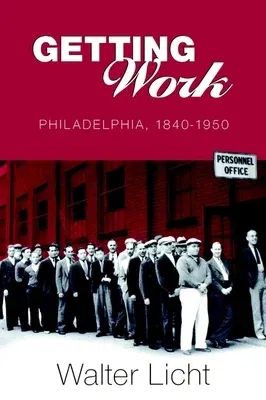Walter Licht
(Author)Getting Work: Philadelphia, 184-195Paperback, 14 February 2000

Qty
1
Turbo
Ships in 2 - 3 days
In Stock
Free Delivery
Cash on Delivery
15 Days
Free Returns
Secure Checkout

Part of Series
Pennsylvania Paperbacks
Print Length
336 pages
Language
English
Publisher
University of Pennsylvania Press
Date Published
14 Feb 2000
ISBN-10
0812217195
ISBN-13
9780812217193
Description
Product Details
Author:
Book Format:
Paperback
Country of Origin:
US
Date Published:
14 February 2000
Dimensions:
22.86 x
15.24 x
2.29 cm
ISBN-10:
0812217195
ISBN-13:
9780812217193
Language:
English
Location:
Philadelphia
Pages:
336
Publisher:
Series:
Weight:
521.63 gm